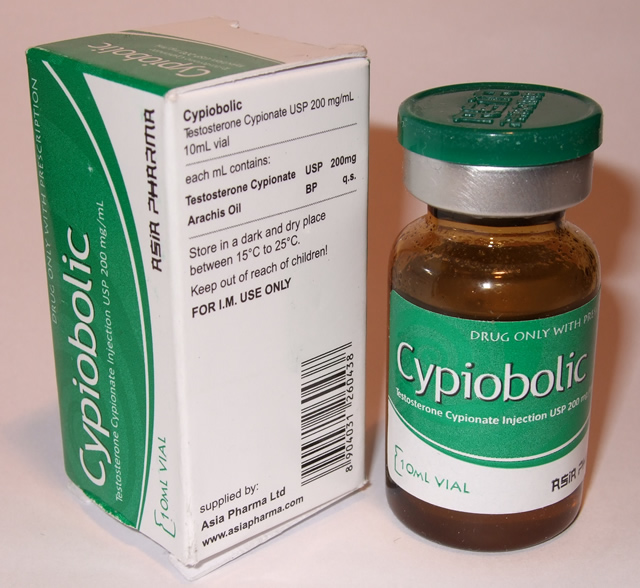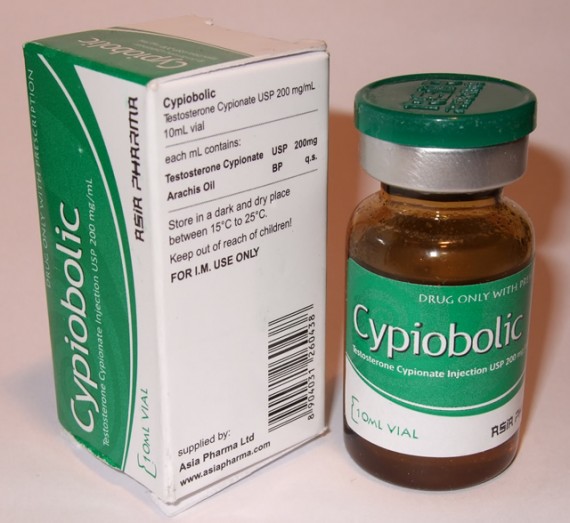
Nelson Vergel, author of “Testosterone: A Man’s Guide” discusses select side effects of testosterone replacement therapy specifically polycythemia and cholesterol issues as addressed in two abstracts that were published today at Endocrine Abstracts:
Polycythemia: The first one shows that polycythemia occurs in 14-17 percent of men using testosterone replacement via different delivery methods. Polycythemia is the increase of red blood cells and hematocrit (the proportion of volume of red blood cells to total volume in the blood) to dangerous levels (hematocrit over 52%) that may increase blood viscosity. Increased blood thickness can increase the risk for heart attacks and stroke.
It is unknown what the incidence of polycythemia in bodybuilders using higher doses than the commonly 100-200 mg per week doses used for testosterone replacement. Some prior studies show that the incidence of polycythemia increases with anabolic dose and duration.
The best way to decrease hematocrit (besides getting off anabolics and testosterone) is to donate blood (if you can) or therapeutic phlebotomy (if you cannot qualify as a blood donor due to HIV, Hepatitis or other issues). More on this: Avoiding Polycythemia on Testosterone Replacment Therapy
Cholesterol: The second abstract shows how testosterone replacement can normalize cholesterol in men with low testosterone. Prior studies in bodybuilders using higher doses show decreases in good cholesterol (HDL), however. More on ways to minimize this issue here: Niacin as Treatment for Steroid Side Effects
Polycythaemia in men treated with transdermal and intramuscular testosterone (Endocrine Abstracts (2011) 25 P37)
Tomas Agustsson, Barbara McGowan, Jake Powrie, Stephen Thomas & Paul Carroll
Department of Diabetes and Endocrinology, Guy’s and St Thomas’ Foundation NHS Trust, London, UK.
Background: Testosterone replacement therapy has been shown to produce a wide range of benefits for men with hypogonadism with studies showing improvement in libido, bone density, muscle mass, body composition, mood, cognition, and erythopoiesis. The risks associated with testosterone replacement therapy are less well characterised and there is a lack of larger randomised trials. One recognised risk is polycythaemia. The aim of this study is to assess the frequency of polycythaemia in men treated with testosterone and to compare it’s frequency with different treatment modalities.
Methods: This is a retrospective observational study. We analysed biochemical and haematological parameters of all men on testosterone therapy who attended our endocrinology unit from the 1st of January 2009 until the 30th of June 2010. Of a total of 173 men, 86 (50%) were treated with testosterone undecnoate (Nebido), 57 (33%) with transdermal testosterone gel, and 30 with intramuscular testosterone in the form of Sustanon. Data were collected on haemoglobin concentrations and packed cell volumes. Polycythaemia was defined as haemoglobin concentration >17 g/dl or packed cell volume >0.505.
Results: Out of the 173 men 25 (14.5%) developed polycythaemia on at least one blood sample during the above period. 12 of the 86 men treated with Nebido (14%), 8 out of the 57 men treated with transdermal gel (14%), and 5 of the 30 men treated with Sustanon (17%) developed polycythaemia. There was therefore no significant difference between the different treatment groups.
Conclusion: In our experience polycthaemia is a common risk with any testosterone replacement therapy. Although previous studies have indicated that this is less likely with transdermal preparations we found the risk to be equally high in all treatment groups. This demonstrates the importance of careful monitoring of haematological variables during any testosterone treatment so that appropriate measures can be taken if erythrocytosis occurs.
Testosterone undecanoate has a beneficial effect on lipid profile in men with hypogonadism in routine clinical practice (Endocrine Abstracts (2011) 25 P103)
Vakkat Muraleedharan1,2, Christen Rolfe1, Nishant Ranjan3 & Hugh Jones1,2
1Barnsley Hospital NHS Foundation Trust, Barnsley, UK; 2University of Sheffield, Sheffield, UK; 3Doncaster Royal Infirmary, Doncaster, UK.
Background: There is a close association between low testosterone and metabolic syndrome. Testosterone replacement therapy (TRT) has beneficial effects on cardiovascular (CV) risk factors in men with hypogonadism.
Aim: This is a retrospective audit of CV parameters in hypogonadal men treated with testosterone undecanoate (Nebido) in standard clinical practice.
Methods: Patients with hypogonadism on testosterone undecanoate injections from 2005 to 2009 were identified from hospital data base. Weight, blood pressure, non-fasting lipid profile and HbA1c (diabetic men n=42) were collected at 3, 6, and 12 months.
Results: Of the 120 patients 99 (82%) had previous TRT with other preparations. Mean age was 48±16 years. After excluding patients with changes in lipid lowering medications over the treatment period, the total cholesterol (TC) and calculated LDL cholesterol (cLDL) demonstrated significant improvement.
TC at 3 months was 3.8±1.4 (compared with 4.6 mmol/l±1.4 at baseline P=0.006, n=47), at 6 months 4.2±1.3 (P=0.03, n=36) and at 1 year 4.1±1.1 (P=0.005, n=41).
cLDL at 3 months was 1.9 mmol/l±1 (vs 2.3±1.1 at baseline; P=0.006, n=43) at 6 months 2.1±1 (P=0.13, n=38) and at 12 months 2.1±1 (P=0.046, n=33).
HDL-cholesterol (HDL) did not show any significant change at 6 months 1.05±0.3 (vs 1.08±0.3 at baseline P=0.33, n=44) or at 12 months 1.04±0.28 (P=0.08, n=35).
At 12 months no significant changes in weight (98 vs 99 kg; P=0.09, n=67) or blood pressure (SBP 135 vs 137 P=0.3 DBP 78 vs 80 P=0.2, n=69) were noted. HbA1c fell by 0.4% (P=0.07) at 6 months in diabetic patients.
Discussion: Testosterone undecanoate therapy in routine clinical practice had beneficial effects on total cholesterol and cLDL, but no significant effect on HDL. No effects were found on weight and blood pressure.

About the author
Nelson Vergel is the author of "Testosterone: A Man's Guide- Second Edition" and co-author of the book "Built to Survive: A Comprehensive Guide to the Medical Use of Anabolic Therapies, Nutrition and Exercise for HIV (+) men and women", the founder of the Body Positive Wellness Clinic in Houston, and an expert speaker on exercise, nutrition, testosterone replacement, metabolism , sexual function and therapies to increase lean body mass and decrease fat.
Leave a Reply
You must be logged in to post a comment.